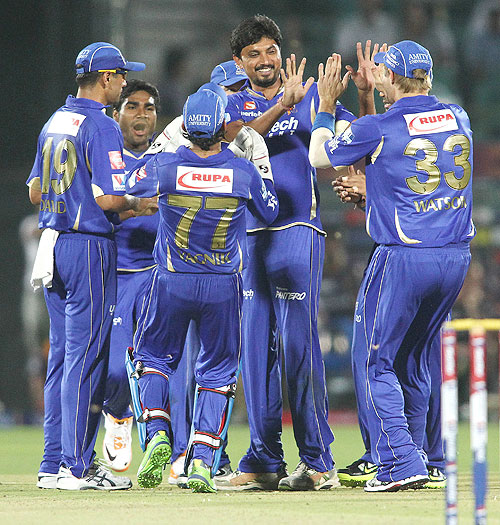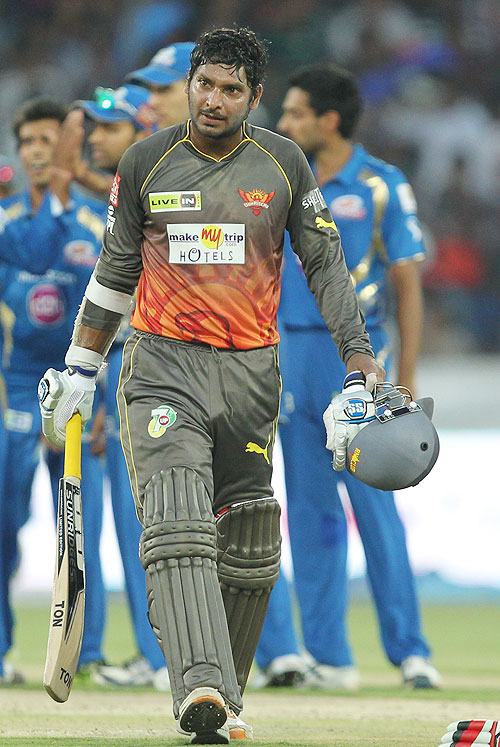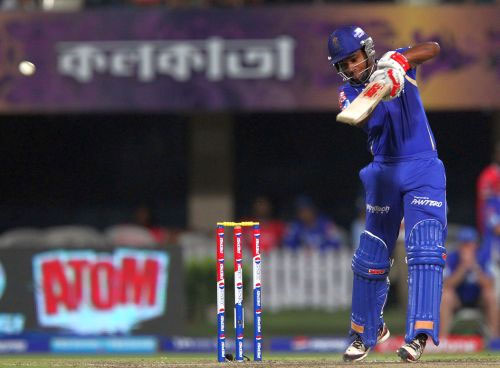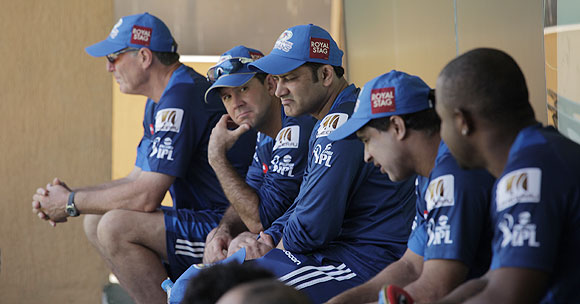 | « Back to article | Print this article |
Lessons to be learnt from the IPL
The key for all Indian Premier League franchises in next year's auction, says Faisal Shariff, will be to invest in good Indian players and choose a captain from among them.
The next time you hear anyone from abroad taunt you about the quality of talent in the IPL, just advise them to watch Britain's Sky Sports 1 channel.
England's best talents are battling it out in the venerated county championship and, frankly, some of the action is unwatchable.
It is still the finishing school, but, in a changing world, they have not been able to adapt as well as India.
Ultimately, it is the quality of the local English players more than overseas talents that has caused this drought. Though the situation is improving, it is far from a finished product.
This brings us to the question about the quality of talent in the IPL. Make no mistake, the IPL is about local Indian talent because seven are allowed to play in the eleven.
So the stronger the pool of Indian players, the better it would be for a franchise. Rajasthan Royals is the best example of that dictum.
What is also crucial to remember is that if you have a good pool of young Indian cricketers, you can groom a captain from among them. That will save you the burden of having to choose a veteran/inexperienced foreign player as captain.
Please click Next to read more...
The IPL is an unforgiving concept for captains
Royal Challengers Bangalore discovered that last season when Daniel Vettori was the skipper, but stepped aside because he could not pull his weight in the squad.
Virat Kohli took charge, then slowly became a full-time bet. Today, Vettori walks around the boundary rope as Kohli marshals the troops.
Ditto is the case with the Mumbai Indians this season; what started off as some sort of fairytale with Ricky Ponting and Sachin Tendulkar quickly changed into somewhat of a nightmare.
Ultimately, Ponting has had to step aside for Rohit Sharma.
Up in Pune, Angelo Mathews stepped down as captain.
Kumar Sangakkara has had to step aside at times for Sunrisers Hyderabad, while Adam Gilchrist is finding life as a 40-plus captain very difficult to handle at Kings XI Punjab.
The IPL is, therefore, proving to be an unforgiving concept for captains who are not performing.
Please click Next to read more...
Unknown names have flowered under pressure
What international cricket is not able to deliver, the IPL has been, by making captains accountable for their performances.
In international cricket you will find that captains get away by not performing for a period of time. But in the IPL the captain has to pull his weight in the side.
So the key for all franchises in next year's auction will be to invest in good Indian players and choose a captain from among them.
Teams have had good a six years to work out what works and what does not. Thus, you find sides no longer splurging on big names, like the Deccan Chargers, Royal Challengers Bangalore did in the first year.
Eventually, the very concept about the IPL being an Indian domestic event will have to be driven home.
If it was the EPL, where teams did not have a bar on number of overseas players in an eleven, then that would not have been required.
But with a bar of just four players, thankfully, it has not increased till now and we are able to see some unknown players flowering under pressure.
Please click Next to read more...
A massive support staff does not always deliver desired results
With the captain being under pressure in the IPL, does the role of coach become very important?
Well, maybe because more than the coaches what IPL sides really need are strong Indian assistant coaches like Rajasthan Royals THE or Pune Warriors India have.
They follow Indian domestic cricket, scout for talent accordingly and can work with the state associations to find more players.
Thin support staff with the essential people like a physio, a trainer, a fielding coach and one person to speak on the matters of the mind should be around.
Apart from that any other personnel like a head coach/bowling coach/mentors etc are just adding up the numbers.
With massive squads, which get culled down mid-way through the season or at the start, big names do not really add value.
You must remember that India won the first-ever World T20, following the model suggested above not with a cricket manager who was a coach, but with two specialist coaches who looked after the nuts and bolts.
Ultimately, as the Mumbai Indians are finding out, having a big support staff looks good on paper, but does not deliver the desired result always.



